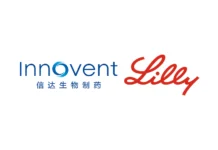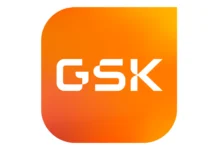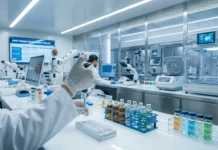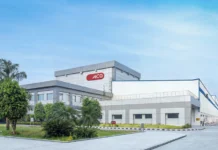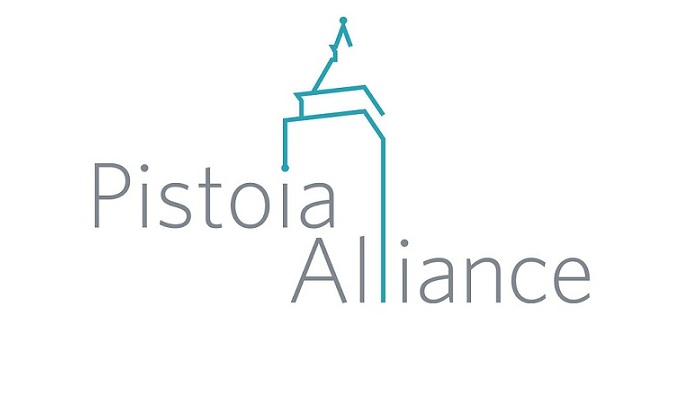The Pistoia Alliance, a global, not-for-profit alliance that works to lower barriers to innovation in life sciences R&D, launched a freely accessible toolkit to help companies implement the FAIR (Findable, Accessible, Interoperable, Reusable) guiding principles for data management and stewardship. The project is funded by large pharmaceutical companies and SMEs alike, including AstraZeneca, Bayer, Roche, Novartis, Bristol-Myers Squibb, AbbVie and Copyright Clearance Center. Collated by experts in the field, the toolkit contains numerous method tools, training and change management, as well as use cases, allowing organizations to learn from industry successes. As the life sciences industry continues to digitize, the FAIR guiding principles of Findable, Accessible, Interoperable and Reusable data will help organizations realize their digital transformation, make preparations for the Lab of the Future (LoTF), and accelerate the application of AI and deep learning.
“At Roche, we know that implementing the FAIR principles can be difficult for biotech and pharma organizations of every size, so we are very pleased to lead on this project and help make the process easier,” commented Dr. Martin Romacker, Principal Scientist at Roche. “The toolkit will help to smooth the path to greater data sharing within and between industries, which is critical to future research efforts. We see the FAIR guiding principles as a worthy goal, and one which will help the industry realize the value of technologies like deep learning.”
Although organizations have become increasingly aware of data as an asset, data are often siloed, stored in varying formats, and difficult to retrieve or share. Adopting the FAIR principles helps companies break down internal siloes and cope with the growing volume and complexity of data generated. The FAIR guiding principles were published in 2016 (Wilkinson, et al.) as a blueprint for well managed and machine-actionable data to allow computational systems to find, access, interoperate and reuse data with minimal human intervention. However, further research (Wise et al. 2019) found that many companies are still struggling with implementation of the principles.
“We are delighted to be working with our peers to facilitate this culture change and forge the path for industry-wide FAIR implementation,” commented Dr. Alexandra Grebe de Barron, IT Business Partner at Bayer. “The launch of the toolkit is coming at a time when life science companies are assessing how they store and manage data to meet new requirements and successfully embark on digital transformation projects. By collaborating with colleagues and partners, we can better realize the value of AI and advanced analytics.”
“Since we launched the project, we have had tremendous interest from global pharma as well SMEs, demonstrating just how important a resource like this is for the entire life science industry,” commented Ian Harrow, PhD, Consultant at The Pistoia Alliance. “The FAIR toolkit will enable organizations to realize the value of their data, accomplish effective data management, and build a more collaborative research environment. Data is the connecting thread between all of our projects at The Pistoia Alliance, underpinning initiatives like the Universal Data Model, as well as the effective implementation of AI. We’ll continue to work with our members on developing projects that deliver such tangible benefits to their organizations.”
The Pistoia Alliance has worked with its industry partners to ensure that the toolkit remains compatible with other FAIR data standardization projects, like the IMI FAIRplus project. For assistance adopting FAIR in your organization, or to get involved in the FAIR project, please get in touch with Ian Harrow (ian.harrow@pistoiaalliance.org).
About The Pistoia Alliance:
The Pistoia Alliance is a global, not-for-profit members’ organization made up of life science companies, technology and service providers, publishers, and academic groups working to lower barriers to innovation in life science and healthcare R&D. It was conceived in 2007 and incorporated in 2009 by representatives of AstraZeneca, GSK, Novartis and Pfizer who met at a conference in Pistoia, Italy. Its projects transform R&D through pre-competitive collaboration. It overcomes common R&D obstacles by identifying the root causes, developing standards and best practices, sharing pre-competitive data and knowledge, and implementing technology pilots. There are currently over 150 member companies; members collaborate on projects that generate significant value for the worldwide life sciences R&D community, using The Pistoia Alliance’s proven framework for open innovation.




